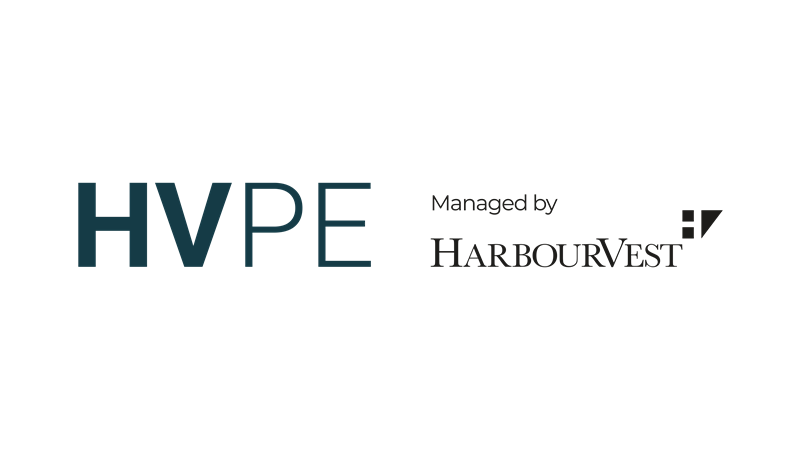Disruptive Technology Points Way To Life Changing Impact
Partner Content provided by WM Nexus
The pandemic has driven dramatic changes in behaviour, accelerated the adoption of new technologies and in the process created new investment opportunities which could change lives.
These shifts were debated by panellists at a recent WM Nexus virtual event, Disruptive technology – creating life changing impact.
It brought together Derek Handley, cofounder & partner, Aera VC, Mikolaj Firlej, cofounder & managing partner at Firlej Kastory and Carl Bergholtz, investment manager at Clearly So.
Necessity has driven some change – notably in remote healthcare – but there is also a sense that investors have turned their attention to protecting against future crises.
The panel looked at a range of areas that offer opportunities in private investment markets now which could change society for the better in future.
Remote healthcare to the fore
One clear outcome of the pandemic has been an accelerated trend towards telehealth.
Bergholtz said: “In digital health, there are lots of companies working to alleviate the stress on frontline health services, helping patients actively manage their conditions in a much better way through the provision of technology. Long term, less treatment is needed in the hospital.”
Remote diagnostics proved of direct importance in countries such as the UK where, for a while at least, it was next to impossible to meet your doctor.
The approach also extends into mental health.
“The mental health space has been underfunded and under-utilised for a long time, because of the stigma attached to it. I'm working with a company which provides a fully digital solution via an app on their phone, which is clinically proven to help.
“People don't have to sign up to long waiting lists to be able to meet a therapist, to diagnose if they have a problem or if they don't. They can use the app to do that.
“It also addresses the problem of stigmatisation to a certain extent. People can receive the therapy that they need in an efficient and private way.”
Handley agreed that virtual therapy and virtual access to health could be transformational.
Yet as an investor focused on the frontier of developments, he predicted a big impact for psychedelic drugs. There is an increasing amount of research into applications for all sorts of mental health issues, including addiction, anxiety, PTSD and end of life trauma.
He added: “There are hundreds of trials taking place around the world examining how the different compounds from these drugs such as LSD, MDMA and psilocybin can be used in clinical therapy and psychotherapy situations, to meaningfully change people's lives in a way that therapy alone has been unable to.
His fund has invested in a company that is developing a variety of different compounds, one for opioids addiction, one for anxiety, and one for PTSD using a variety of psychedelics.
“The research was making significant headway in the 50s and 60s. Before the drug category was harshly shut down and banned by Richard Nixon, and then for 30 or 40 years progress was stunted. So what's really happening is a renaissance of realising. The results are transformative.”
As well as formerly controversial categories of drugs, there are also big changes afoot in terms of the process of pharma development illustrated by one of Firlej’s investments.
Molecule One is automating the chemical synthesis process, applying AI to understand different molecular combinations, and ranking their chances of delivering success in terms of producing the intended reactions and results. He suggests it could reduce the time to bring drugs to market from ten to two years.
“This would help replace the traditional work being done by chemists in the laboratories, which is basically similar to the cooking process at the moment,” he said.
Broadening the scope of sustainable energy investing
In terms of energy sustainability, there were worries that the pandemic could have interrupted progress. Instead, politicians have increasingly committed to new targets. Within that, the idea of what constitutes investment in sustainable energy may be broadening.
With much of his focus on central and eastern Europe, Firlej described a gradual process of moving from fossil fuel energy to renewables encouraged by subsidies but with investment in non-subsidised sectors the next phase.
That has brought a move into green hydrogen, supply chain software applications and marketplacesconnecting the supply and demand sides of the solar industry.
Handley said he was focused less on infrastructure and more on the development of new types of energy generators, and new deep technologies that change the way energy is either created or consumed.
“We are looking to invest at the cutting edge of a great transformation, a great industry change. So, we are looking at companies for example that convert algae or waste agricultural by-products, to energy or carbon-negative chemicals. We're looking at anything that's carbon negative, totally disruptive, and is either using an alternative feedstock to petrochemicals to produce energy or some other output, or even using a totally different approach altogether.”
Food system on the eve of transformation
Handley then discussed what he believes will be a total transformation in the food system globally.
“It is like the early to mid 1990s with the possibilities of the internet. Investment in new ways to produce food is exploding everywhere in the world with both plant-based and cell-based technologies producing meat-like substances.”
He listed a range of investments – an Australian firm producing mushrooms to mimic meats, a Singapore company that produces alternate cell-based crustaceans like shrimps and lobsters in a lab and another firm creating mozzarella.
He said we may see a whole range of firms producing underlying components – offering a particular taste or texture – for the food industry.
Risk-governance opportunities
Firlej then discussed developments in risk-governance covering cybersecurity, RegTech and secure data.
He said: “One of the major characteristics of our time is risk.”
Along with environmental risk, there are cybersecurity risks and the risk of non-compliance with external regulations and internal company policies.
He is investing in a company which automates compliance in financial institutions in the UK.
“It has developed a very smart algorithm that helps firms to stay compliant not necessarily with new regulations, but with policies that banks and insurers need to have internally with respect to ESG, employees’ rights, and so on.”
In an era of data breaches, one strategy is to use privacy preserving technologies involving, among others, advanced cryptography, homomorphic encryption, multi-party computation and federated learning.
“We have invested in a company that instead of betting on one technology has developed an agnostic platform that combines different types of technologies currently used by corporations.”
The company enables corporations to deploy proprietary machine learning as a service without
comprising the corporations IP and infringing on data privacy.
A flatter global market
But how has the crisis changed working practices within the investment industry itself?
Handley said he believes the hybrid way of working is here to stay.
He said: “I think it's changed forever. People are investing either as an LP or directly, virtually, without meeting people. A year ago, people would have said they never would do that. The marketplace is now global. Every deal is now possibly far more competitive and the pipeline of deals is global. We see more than we did last year because so many accelerators and incubators instead of doing their in-person demo days, in-person pitches, they're all virtual. It has changed the dynamic of the venture investing, private investing marketplace significantly, both from a supply side, but also from a demand side. It is super exciting because you can access everything.”
John Lappin is Contributing Editor at WM Nexus
© The Sortino Group Ltd
All Rights Reserved. No part of this publication may be reproduced, stored in a retrieval system or transmitted in any form or by any means, electronic, mechanical, photocopying, recording or scanning or otherwise, except under the terms of the Copyright, Designs and Patents Act 1988 or under the terms of a licence issued by the Copyright Licensing Agency or other Reprographic Rights Organisation, without the written permission of the publisher. For more information about reprints from AlphaWeek, click here.







